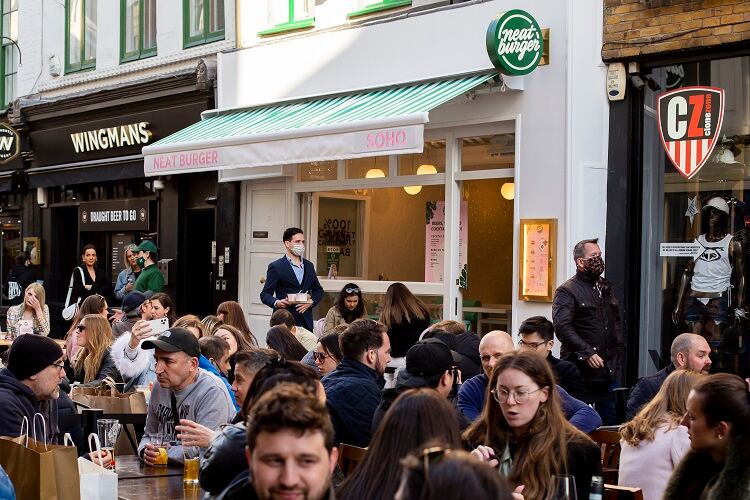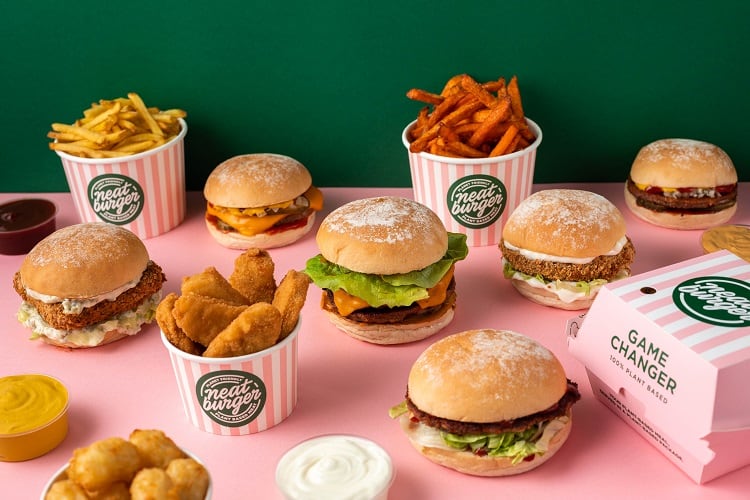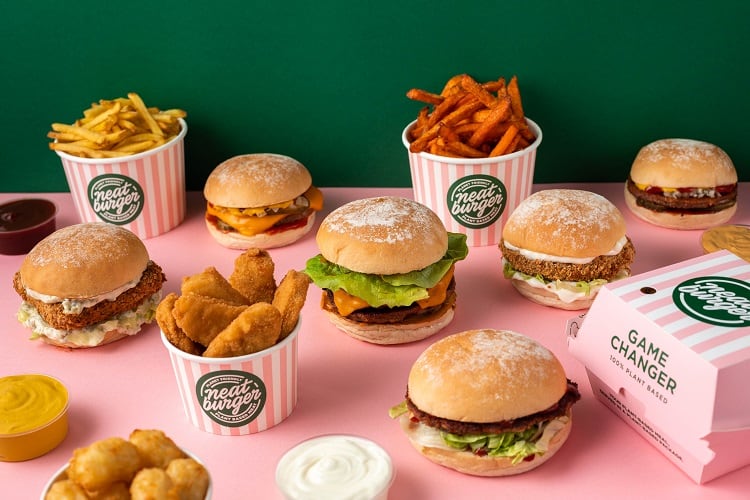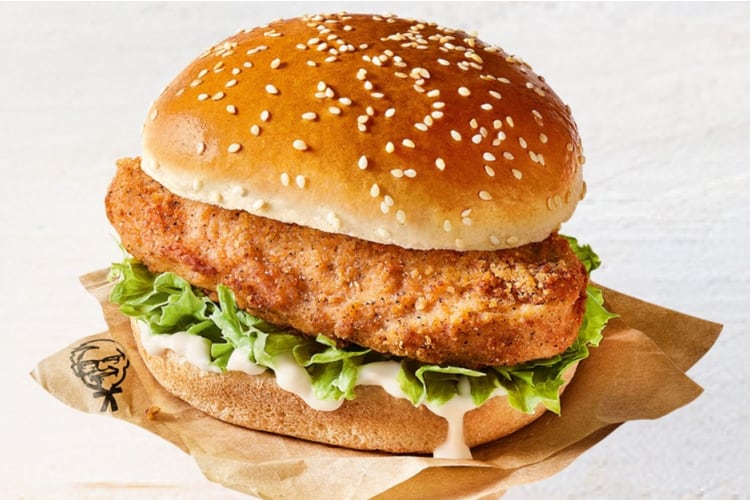“Humans are inherently selfish,” according to entrepreneur Zack Bishti. “Whilst we have the best intentions, sometimes because of convenience, or because we don’t like trade-offs, our spending habits say otherwise.”
Indeed, sustainability has topped consumers’ agenda over the last few years. Or at least, we’re led to believe it has. Consumers themselves say they want environmentally sustainable food and drink products, but according to a recent Euromonitor International survey, about half of all consumers are still hesitant to pay more for sustainable food products.
Bishti, co-founder of London-headquartered quick service restaurant (QSR) Neat Burger, realised this ‘early on’. And so when the challenger brand launched in 2019, its mission was to make its vegan products ‘accessible to everyone’.
“We wanted to make it easy, accessible, and offer a plant-based QSR for the mass market,” Bishti told delegates at Forward Fooding’s agri-food tech event in London last week. “We wanted to ‘Trojan Horse’ sustainability.”
How is it achieving this? Through taste, customer acquisition, and a long-term retail strategy, explained the co-founder CEO.
'If it doesn't taste great, no one cares how sustainability it is'
Neat Burger acknowledges that ‘taste is king’. For the company to win over the ‘die-hard meat eaters’, its primary focus is on taste, flavour, and replicating the ‘nostalgia’ experienced from eating at a fast-food restaurant.
“We knew that if the product didn’t taste great, no one would [care],” recalled Bishti. “It doesn’t matter how sustainable [the product is], you really have to focus on flavour and taste.” And the ‘nostalgia’, he continued, is ‘the first most important step to win people over’.
The Neat Burger patty is made from pea, corn, rice, quinoa, chickpea, potato, rapeseed and sunflower oils, and flavoured with onion, garlic, and salt. Texture is achieved thanks to water, methylcellulose, carrageenan, konjac gum, and lecithin, while colours are contributed with beetroot, carrot, lemon, berries, and turmeric.
Neat Burger was also laser-focused on being ‘experiential’. What does the start-up mean by that? Well, the co-founder noticed that the experience of a branded plant-based burger could be ‘great’ in one venue, but ‘terrible’ in another.
“For us, having the restaurant as our forward-facing positioning for consumers to try our product have us an opportunity to control the experience. We wanted to make sure they had the same experience every time they went.”

Since launching in 2019, Neat Burger’s restaurant presence has expanded. The start-up has set up eight restaurants in London, and one in New York City. Rapid expansion has been enabled with investment. Big-name investors include Lewis Hamilton (who co-founded the company), Christian Edler, and Leonardo DiCaprio.
Short- and long-term goals
Neat Burger boasts restaurants in London’s Camden, Finsbury, Oxford Circus, Soho, Westfield Stratford, Canary Wharf, Victoria, and Liverpool St. The QSR recently launched its first restaurant in Manhattan, New York.
“We are on track to be the largest plant-based QSR brand based on territories,” said Bishti at the agri-food tech event. “Right now, in the UK, we have eight locations, and we are opening in Dubai next month.”
For Neat Burger, New York City is the primary focus, being the territory the start-up is ‘most excited about’. Another country on its radar is Italy, where Neat Burger has plans to launch soon.

Expanding its restaurant network is helping accelerate Neat Burger’s customer acquisition, the co-founder explained. And this is how Neat Burger differs from its alt meat player competitors, we were told.
The meat-free sector is not short of newcomers. But according to Neat Burger, its competitors approach meat-free analogue production from a scientific perspective before ‘finding the consumer’. In the end, he continued, these food tech companies ‘all end up fighting for the same section in the supermarket’.
Neat Burger is coming at the meat-free category from another angle. By the time Neat Burger lands in retail, the company hopes to already have an established customer base.
“For us, restaurants really represented a [means of] customer acquisition, where they could come and try the product in its best light, feel the brand, and like it. For us, it’s part of the bigger picture of building a community. If we can build that community long-term, I think we’ll have success.”
Retail is Neat Burger’s ‘long-term play’, the co-founder revealed: “Much like Pizza Express, Nandos, and Leon. I think it’s a great opportunity, we just want to get the restaurants in the right place first.”




